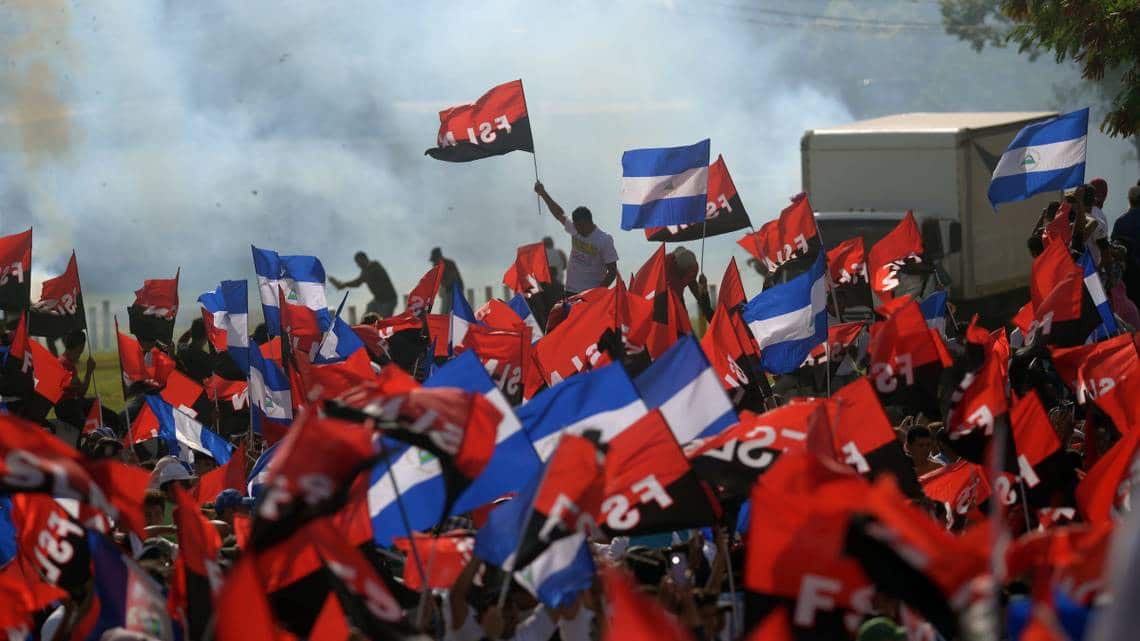Communism is Making a Comeback; So Should Captive Nations Week

Welcome to Captive Nations Week. Never heard of it? You’re not alone. Yet this usually-forgotten, federally mandated occasion — now in its 60th year — is worth resurrecting in the 21st century.
Congress created Captive Nations Week in 1959, making the third week in July a time to show Americans’ solidarity with the nations dominated by communism. The original law listed 22 captive nations, most of which had substantial communities of citizens in major American cities. After the law’s passage, these communities began to hold parades and rallies every year, from Miami to New York to Los Angeles to Chicago and many other cities.
Mayors and governors often participated in local parades, while presidents, obliged to issue an annual proclamation under the 1959 law, did their part, too — especially Ronald Reagan, who touted the week in public speeches. Cherished by refugee communities and well-known in political circles, Captive Nations Week played an important role in the triumph of liberty during the Cold War.
Since 1989, Captive Nations Week has almost completely faded from view. Yet there are still many captive nations around the world. More concerning: Communist-dominated nations are once again growing in number.
The original list included mainland China, Tibet, North Korea, and Vietnam — all of which are still under communist sway. So are several countries added to the list over the years — for instance, Cuba and Laos. The original law also noted geographic areas, such as the part of Turkestan, now called Xinjiang by the People’s Republic of China, which is still brutalized by Communist China.
As a congressionally authorized organization, the Victims of Communism Memorial Foundation continues to raise awareness about the plight of these nations and peoples. Three years ago, we also recognized three new captive nations.
The first is Hong Kong. For more than a decade, Communist China has undermined the city’s autonomy. As local pro-democracy leaders have told us, China’s control over Hong Kong’s daily life is deeper than most people know.
The second is Venezuela, which is captive to Communist Cuba. Cuba’s military and intelligence services help keep Nicolás Maduro in power as the rest of the country descends deeper into poverty, blackouts, hunger and desperation.
The third is the occupied parts of Ukraine, such as Crimea, which has been controlled by Russia since 2014. As Ukrainian leaders have told us, they see Russia’s actions as an extension of Moscow’s Cold War logic, and so do we.
This year, we are recognizing another captive nation: Nicaragua. Like Venezuela, it is increasingly a satellite state for Cuba. In our conversations with members of the Nicaraguan military, they told us that Cuban and Venezuelan experts trained the paramilitary forces behind last year’s brutal crackdown on nationwide peaceful protests.
Every captive nation, new or old, deserves America’s attention. To revive public knowledge of this week, our organization will host a Captive Nations Coalition Summit, working with exiles and local communities. But government action is needed to truly bring this issue back into the national spotlight.
In decades past, members of Congress introduced a slew of resolutions, gave speeches and participated in events during Captive Nations Week. They should do so again. President Trump should also issue a substantive proclamation. Proclamations have become pro forma documents in recent years. It could focus on Venezuela, which is close to escaping Cuban domination. It could also focus on China and the many peoples and places it dominates.
The American people still stand with those who yearn for freedom from Communist oppression. Sixty years after its founding, and 30 years after the fall of the Berlin Wall, it’s time to bring back Captive Nations Week.
Marion Smith is the executive director of the Victims of Communism Memorial Foundation, an educational and human-rights non-profit authorized by a unanimous act of Congress. @smithmarion

